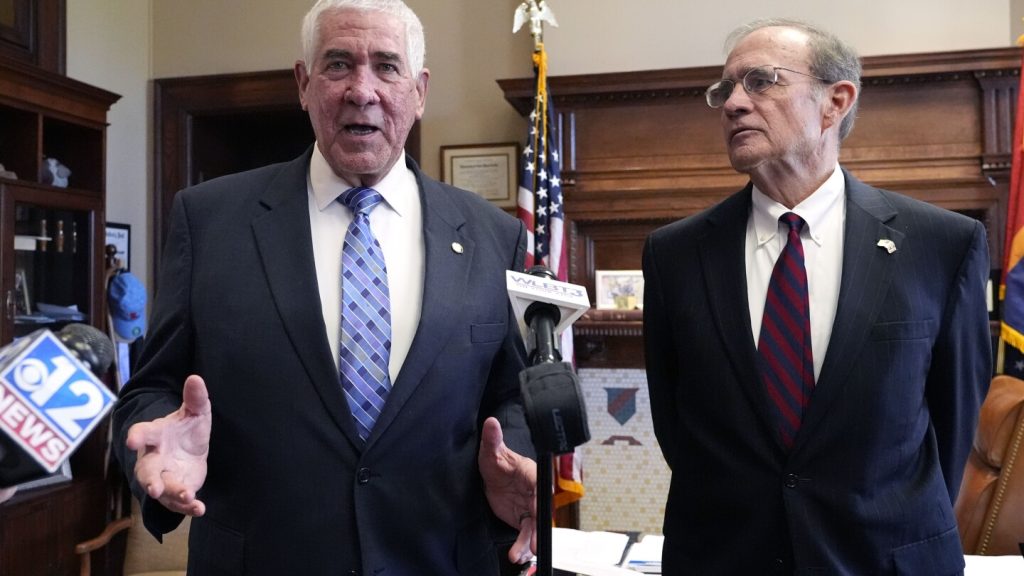Mississippi lawmakers are currently in negotiations over expanding Medicaid in the state, which is one of the poorest in the U.S. The Senate has proposed a plan that would insure fewer people and bring less federal money compared to the version approved by the House. The Senate’s approach includes a tougher work requirement and measures to prevent a wider expansion of Medicaid benefits in the future, leading to a struggle between Republican Gov. Tate Reeves and members of his own party. Reeves has criticized the bill as “Obamacare Medicaid” and expressed concerns about it being a form of welfare expansion to able-bodied adults who choose not to work.
Republican Sen. Kevin Blackwell, chair of the Senate Medicaid Committee, has defended the Senate’s proposal as a responsible and conservative bill aimed at helping the working poor. The amended bill would extend eligibility to those making up to 100% of the federal poverty level, which is lower than the 138% figure approved by the House. While the House proposal could potentially benefit 200,000 people, Blackwell estimates that the Senate version may make 80,000 people eligible, with only about 40,000 projected to enroll. Supporters of Medicaid expansion argue that it could help address the state’s poor health outcomes and economic challenges.
Democrats in the Senate introduced amendments to expand Medicaid to more people, but they were voted down by Republicans. Despite this, Senate Democrats all voted for the bill, emphasizing that Mississippi is facing a health care crisis. Opponents of Medicaid expansion argue that it could lead to government dependency, longer wait times for health services, and a decrease in private insurance coverage. Republican lawmakers have emphasized the importance of a work requirement, with the Senate version requiring at least 30 hours of work per week to qualify for expanded benefits, compared to the House’s 20-hour requirement.
The Senate’s bill ties expansion to a work requirement that would need approval from President Biden’s administration, which has previously revoked such waivers. Only Georgia has successfully implemented a work requirement for partial Medicaid expansion, with Mississippi proposing a stricter requirement that aligns with Republican priorities. The Senate version also eliminates the possibility of expansion without a work requirement, potentially jeopardizing additional financial bonuses available under the House’s version. If the bill reaches Gov. Reeves’ desk, he is likely to veto it, but lawmakers could override the veto with a two-thirds vote from both the House and Senate.
Overall, the debate over Medicaid expansion in Mississippi involves competing proposals from the House and Senate, with significant differences in eligibility criteria and work requirements. While supporters argue that expansion could improve health outcomes and economic conditions in the state, opponents raise concerns about government dependency and potential impacts on private insurance coverage. The bill’s fate rests on negotiations between lawmakers and potential veto override in the face of differing priorities and opinions within the Republican party.















